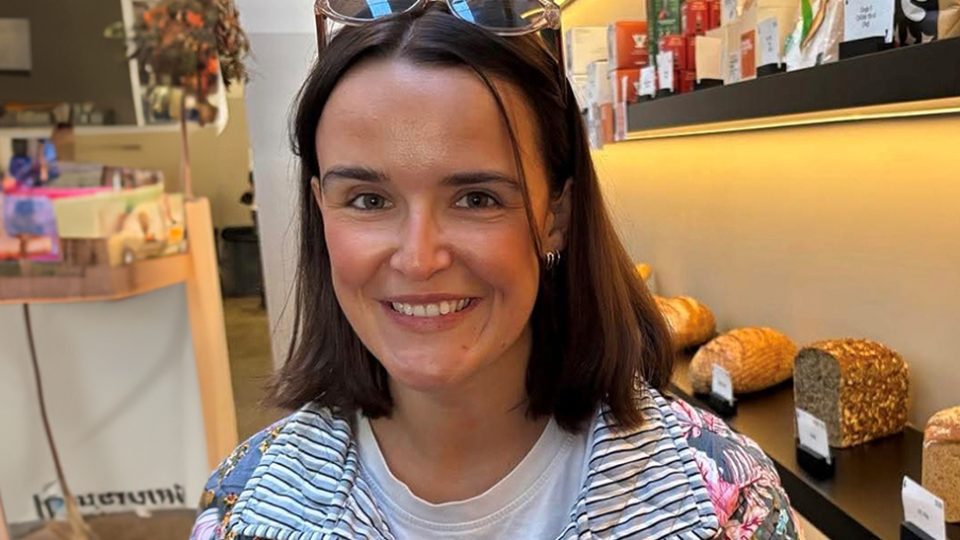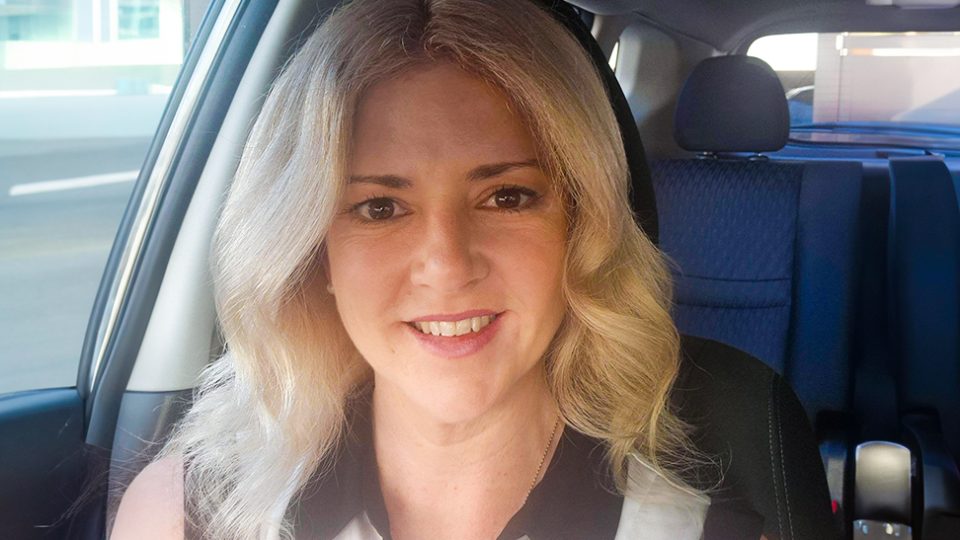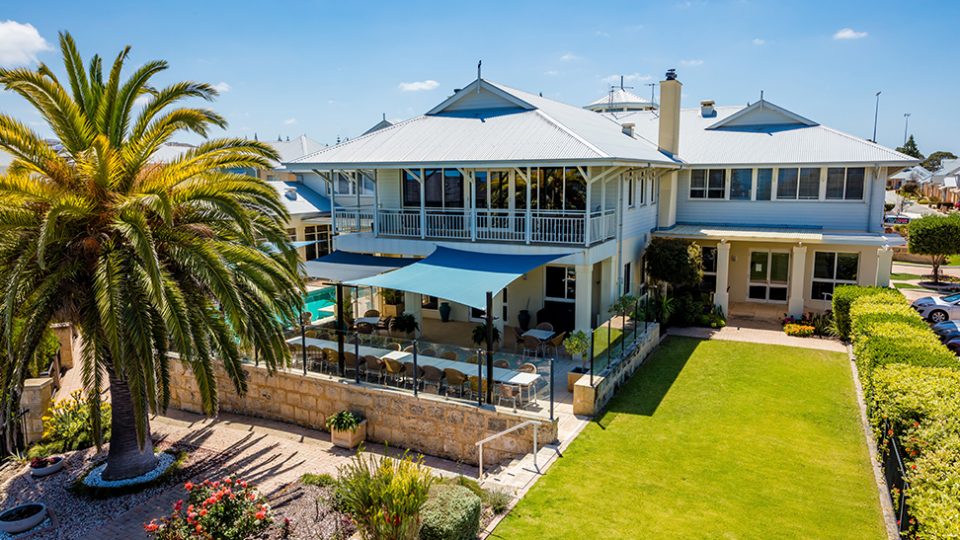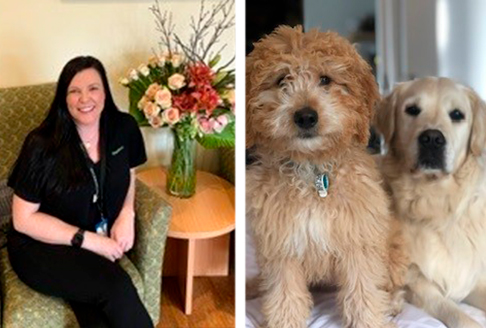Who would have thought that a young girl’s love of the Australian television series, ‘A Country Practice’, would lead to a rewarding career in nursing?
That was Michelle Turra’s experience – and we could not be more delighted! She’s been a valued member of our team at Baptcare St Hilary’s for more than 20 years.
The start of a brilliant career
Michelle joined Baptcare in 2002 while completing her Bachelor of Nursing degree.
“I saw an advertisement in the local newspaper. I remember my first shift as a personal carer – I was given six residents to attend to on my own!” says Michelle. “I think I only made my way through assisting four. It was initially overwhelming, but I stuck it out with the support from a great team.”
Michelle’s career always revolved around healthcare, starting out as a receptionist at a medical centre before joining us at St Hilary’s. After earning her qualification as a Registered Nurse, Michelle knew that a career in aged care was for her.
“Aged care nursing is really rewarding,” she explains. “You have the opportunity to meet so many different people who have led impressive and interesting lives.”
A love of learning
Since joining Baptcare, Michelle has gone on to complete graduate studies in Cancer Nursing at Latrobe University. Throughout her career she’s consolidated her knowledge and experience across mental health, chronic disease management, palliative care, dementia care, infection control, pain management, clinical deterioration and emergency care.
“It’s never boring and every day is different,” she says. “You get personal satisfaction from knowing that the comfort and care you provide enriches the lives of our residents. You are improving the quality of life for others.
“It’s a myth that you will lose your skills by working in a nursing home. Elderly people have complex medical needs. You get to learn skills such as geriatric assessment, communication skills, leadership skills, critical thinking and problem-solving.”
A day in the life of an aged care Registered Nurse
Michelle describes St Hilary’s as a smaller 51 bed ‘boutique’ home with a great family environment. “You get to know the residents really well,” she says.
The value of having regular contact with a familiar face is a key factor in clinical care, Michelle explains, as it allows for quick identification of any deterioration in wellbeing. “You can sense when a resident is simply not themselves,” she says.
Michelle leads and supports the St Hilary’s staff, ensuring day to day running of the home and that all residents’ needs are met. She oversees resident clinical care and supports management with governance tasks.
“I liaise with doctors and allied health staff to ensure clinical care needs are attended and meet with family members to discuss any issues or concerns.”
A keen work ethic – forged on a dairy farm
Michelle’s colleagues speak with glowing praise about her dedication, hard work and reliability. She’s been described as ‘their backbone’ and it’s clear that staff and residents alike love having her as part of the St Hilary’s team.
When asked what her secret for staying motivated is, Michelle doesn’t hesitate to reference her childhood experiences growing up on a dairy farm. Especially, watching the work ethic of her father.
“I grew up in Trafalgar on the farm,” she explains. “I watched my dad work tirelessly, seven days a week, all year round: rain, hail and shine. I’m pretty sure this gave me the foundations for a strong work ethic.”
In terms of keeping the team motivated, Michelle notes the importance of respecting and valuing each other. Acknowledging people have different strengths and weaknesses (and different ways of working) is key to building a strong team who can support each other.
“I also believe in promoting positive morale amongst staff,” she says. “I’m always happy to organise social dinners, movie nights or lunch order days to brighten our moods. I definitely promote work/life balance.”
On a personal level, Michelle tries to get up early every day and go for a walk before work. “It’s great for mood and sleeping. I make sure I have regular massages for relaxation and my health. It’s important to know that to care for others, you first need to care for yourself.”
Relaxing outside of work
Michelle is lucky to have two dogs who love going out on walks – a Golden Retriever named Rigby and Lucy, a Groodle.
“I am lucky to live in Gippsland – one hour to beach, city or bush,” says Michelle. “I love spending time going for walks and exploring these areas.”
When asked to name anyone in the world she’d like to have an opportunity to catch up over a coffee with, her choice naturally reflects someone who shares Michelle’s commitment to tender hearted care.
“Princess Diana. For her kindness, compassion and her humanitarian efforts,” she explains. “I am sure she would have had some great stories to tell.”
Her motto in life
Unsurprisingly, Michelle’s motto is all about finding the silver lining in life.
“I try to have a positive outlook on life and – as John Lennon said – ‘There are no problems, only solutions’,” she says. “I have definitely harnessed this thinking from my experience in aged care. If we just take a deep breath and prioritise what needs to be done, we can usually work through our stress.”
Thank you, Michelle, for all the hard work, support and compassion you’ve provided to our residents over the years. Baptcare is proud to have you on board – you are definitely our ‘Queen of Hearts’.
If you are interested in working for Baptcare, explore our career site here. We also have a variety of volunteer opportunities available.
Community news
-

Staff Spotlight: Annabelle Hancock
Meet Annabelle Hancock, Statewide Carer Support Liaison Officer for the Foster and Kinship care team based in Tasmania.
- 06 Jan 2026
-

Staff spotlight: Alicia Johnston
We are very proud of our talented and dynamic workforce and enjoy following their professional work journeys. Roles aren’t static at Baptcare. There is flexibility to grow and develop into different areas, such as Alicia Johnston’s experience.
- 06 Jan 2026
-

BaptistCare to acquire Keyton’s Western Australian retirement village portfolio
BaptistCare is pleased to announce that we have entered into an agreement to acquire Keyton’s portfolio of retirement villages in WA.
- 13 Nov 2025

